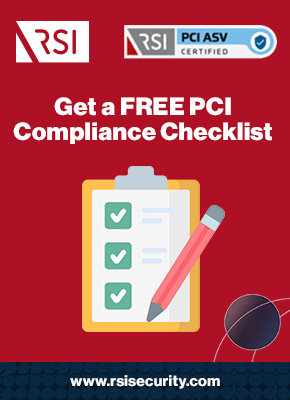Is Stripe PCI Compliant? If you implement it properly, the answer is yes, Stripe is completely PCI compliant!
Stripe is a popular platform that makes it easy for businesses to accept credit and debit cards over the internet quickly and securely. Ridesharing company Lyft uses Stripe to power its payment solution for 700,000 drivers around the world, and that’s just one company. This payment service moves billions of dollars a year and is used by tens of thousands of companies around the world, from small scrappy startups to established Fortune 500s.
You don’t become a leading plug-and-play payment solution provider by accident. You do it by making it quick and painless for companies to accept credit card payments at scale. It’s not always easy for companies to meet the stringent security standards for processing online payments, let alone other personally identifiable information like birthdays and addresses. This requires a lot of technical expertise, expensive hardware, and active attention for companies to achieve that on their own.
And it shouldn’t necessarily be easy for companies to meet these standards! When there are lax attitudes toward capturing and processing this information, then it becomes that much simpler for malicious cybercriminals to harness it to their own ends. The bar for processing sensitive information online should be high, not low.
This is why the major US credit card networks joined forces to implement and maintain strong data security policies within the industry. Their guidelines are called the Payment Card Industry Data Security Standard, and when companies adhere to this standard, customers and businesses both benefit.
Assess your PCI compliance
Customers get to shop and transact in an environment that’s been checked for security, so they know they can safely transmit their credit card information in order to buy something from an online merchant. And the businesses handling these transactions have a stamp of approval from an expert organization that confirms they’re following all the rules for processing this information, making them more impervious against cyberattacks or malicious hackers.
PCI compliance not only saves these companies from paying noncompliance fees, but it means they’re far less likely to find themselves at the center of a public relations scandal in the wake of a customer data breach or other compromises.

Stripe makes PCI compliance easier than other solutions
Businesses turn to Stripe for payment processing for the same reason you go to any expert: you want the best, and you don’t want to have to worry about the technical nitty-gritty that might be involved to get there. Niche expertise is only won by way of time and effort, and businesses selling a product or service are much more likely to specialize in that product or service instead of online payments. For many companies, the thinking is that they have better things to worry about — offering a quality product or generating strong revenue, for example — instead of going deep on the highly specific rules governing how online payments should be processed.
If a large e-commerce company wants to handle its own payment processes, this comes with significant infrastructure and security costs. There are firewalls and hardware devices that not only must be purchased and installed, but then upgraded and maintained on a continuing basis. But when companies rely on Stripe to handle this information, they effectively outsource all those processes to a company that specializes in them.
Any internal business systems that handle customer information and sensitive card data end up landing outside the scope of PCI compliance. The software that drives this is called Stripe.js, and it processes payment information using a Secure Socket Layer (SSL) well away from a company’s own server using Stripe’s own infrastructure. That happens to be a level one PCI-compliant service, so businesses can easily clear the bar for PCI compliance by using Stripe.
This company specifically specializes in internet payments, so its infrastructure meets and exceeds the highest security standards for the payment industry. They have dedicated PCI-certified auditors that regularly examine its system to ensure compliance. From the smallest startup to the biggest corporation, any company could start using Stripe for its payments today and have full confidence that they would be PCI-compliant (and remain PCI-compliant into the future).
Does your business need Stripe for PCI compliance?
There are several ways to meet the standard of PCI compliance, and Stripe is just one of them. It’s certainly one of the more convenient ways. If you’re looking for an out-of-the-box solution for PCI compliance so that you can focus on building up your own business offerings, this is a strong way forward. It frees you from compliance headaches so you can focus on other areas that you actually specialize in.
An e-commerce business may have many other things to concern itself with beyond PCI compliance — sourcing new products, expanding its operations, and so on — but Stripe exists specifically to process payments quickly and securely. As this is the company’s entire focus, it can invest significantly more energy in maintaining its own PCI standards, then outsourcing its infrastructure to other businesses.

Stripe automates a lot of the work associated with maintaining PCI compliance. When an e-commerce business chooses Stripe to handle its payment information, it removes the compliance burden from that business and puts it entirely on Stripe. This means small businesses can leverage modern payment solutions. If you’ve ever wondered how family-owned retailers or coffee shops can wrangle fancy tablet checkout systems, it’s because they lean on external companies like Stripe to prop up their own payment infrastructure.
That level of service combined with significant demand makes Stripe one of the go-to payment solutions for merchants large and small. Companies don’t have to think about PCI compliance at all, yet enjoy all the benefits of security and protection that come from it.
Download Our PCI DSS Checklist
Assess where your organization currently stands with being PCI DSS compliant by completing this checklist. Upon filling out this brief form you will receive the checklist via email.

